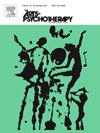Preference or choice? Relationships among college students’ music preference, personality, stress, and music consumption
IF 1.5
3区 心理学
Q3 PSYCHOLOGY, CLINICAL
引用次数: 0
Abstract
Research has consistently shown correlations between music preference and personality traits. However, the impact of situational factors, such as stress and music consumption, on this relationship has not been investigated, to our knowledge. Given the importance of music preference as a factor to explain the use of music in everyday life and its therapeutic effect, we investigated the relationship between music preference and personality traits when stress overload and music consumption were considered. We conducted an online survey with undergraduate and graduate students, measuring their music preferences (through the STOMP-R scale), personality traits (HEXACO test), stress overload (SOS-S), and music consumption (number of hours listening to music per day). Open-ended questions explored participants’ uses of music and musical elements that most affect them. Results show similar relationships between music preference and personality traits as previous research, with no impact from situational factors. However, intentional uses of music and influence of specific music elements (i.e., rhythm) may indicate that music choices (i.e., the choice of music for a specific goal within a specific context), and not music preference in general may be a better indicator of therapeutic effect.
偏好还是选择?大学生音乐偏好、个性、压力与音乐消费的关系
研究一直表明,音乐偏好与性格特征之间存在相关性。然而,据我们所知,环境因素(如压力和音乐消费)对这种关系的影响尚未得到调查。鉴于音乐偏好是解释日常生活中音乐使用及其治疗效果的重要因素,我们在考虑压力过载和音乐消费的情况下,研究了音乐偏好与人格特征之间的关系。我们对本科生和研究生进行了一项在线调查,测量了他们的音乐偏好(通过STOMP-R量表)、性格特征(HEXACO测试)、压力过载(SOS-S)和音乐消费(每天听音乐的小时数)。开放式问题探讨了参与者对音乐的使用以及对他们影响最大的音乐元素。结果表明,音乐偏好与人格特征之间的关系与之前的研究相似,不受情境因素的影响。然而,有意使用音乐和特定音乐元素(即节奏)的影响可能表明,音乐选择(即在特定背景下为特定目标选择音乐),而不是一般的音乐偏好,可能是治疗效果的更好指标。
本文章由计算机程序翻译,如有差异,请以英文原文为准。
求助全文
约1分钟内获得全文
求助全文
来源期刊

Arts in Psychotherapy
Multiple-
CiteScore
3.20
自引率
11.10%
发文量
66
期刊介绍:
The Arts in Psychotherapy is a dynamic, contemporary journal publishing evidence-based research, expert opinion, theoretical positions, and case material on a wide range of topics intersecting the fields of mental health and creative arts therapies. It is an international peer-reviewed journal publishing 5 issues annually. Papers are welcomed from researchers and practitioners in the fields of art, dance/movement, drama, music, and poetry psychotherapy, as well as expressive and creative arts therapy, neuroscience, psychiatry, education, allied health, and psychology that aim to engage high level theoretical concepts with the rigor of professional practice. The journal welcomes contributions that present new and emergent knowledge about the role of the arts in healthcare, and engage a critical discourse relevant to an international readership that can inform the development of new services and the refinement of existing policies and practices. There is no restriction on research methods and review papers are welcome. From time to time the journal publishes special issues on topics warranting a distinctive focus relevant to the stated goals and scope of the publication.
 求助内容:
求助内容: 应助结果提醒方式:
应助结果提醒方式:


